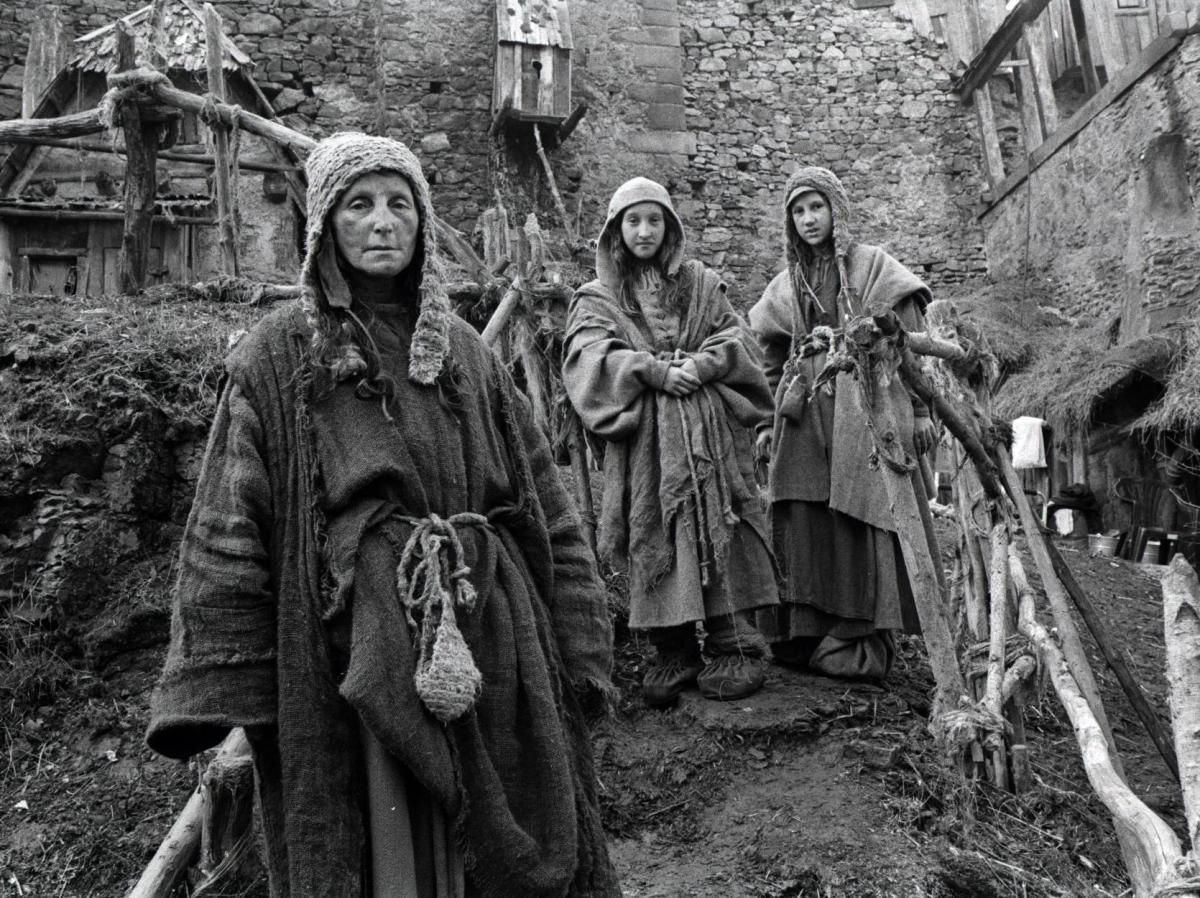That a film boasts aesthetic appeal shouldn’t need to be said; cinema is an audio-visual medium, with projecting images large and in luxurious detail key to its appeal. Of course, there are as many different renderings of visual creativity as there are stories, beauty lying in the eye of the beholder. When a feature not only succeeds in what should be a basic aim of all movies, but exceeds in a manner that can only be deemed extraordinary, however, it is impossible not to shout its praises.
Hard to Be a God (Trudno byt bogom) is one such film, so rich and intricate in texture yet so clouded in dusty bleakness that its shades of grey – and it is that colour, rather than the extremes of black and white, that fill its frames – paint with their own palette. No space on the screen is spared, in all the feature’s muddy, murky, dirty, dank glory as it shows the hustle and bustle of the worst characteristics of an ungrateful mankind. Imagining human society devoid of the intellectual imprint of the enlightenment is the feature’s purpose and premise, and one its visuals valiantly meet with tactile precision. The film’s world may be one in which the Renaissance has not happened, but its look is one devastating artistry – and its sounds are whipped into an acoustic frenzy to match.
Adapting Boris and Arkady Strugatsky’s 1964 sci-fi novel of the same name, Hard to Be a God takes place on the Earth-like planet of Arkanar with life resembling our own, but stuck in the Middles Ages phase of its civilisation. Thus, existence within its confines resembles all that its medieval description suggests – harsh, unforgiving, cruel and callous, with survival rare and a gruesome death the most likely outcome for all inhabitants. Can humanity cope with such testing conditions of perpetual punishment and constant uncertainty, or does the external horror merely augment our true nature? When persecution meets any spark of insight or imagination, how can society evolve? That’s what the film ruminates over in a narrative easy in its parallels with Russian life and governance, but also looking far broader in its meditation.
The loosest of narratives sees thirty scientists arrive to observe, to refrain from interfering, but also to usher in a new age of understanding as the populace sits on the brink of better times. One man (Leonid Yarmolnik, We Are Family) is vaunted as special and celebrated as the son of a pagan god as he weaves in and out of the everyday happenings, slaughter and sacrifice just routine occurrences. Bodily fluids fly freely amongst the largely male cohort fight, excreting their malaise their only form of release. Barbarism and brutality comprise the operating mindset of the people encountered, and the film posits – as did the book before it – that these are mankind’s default settings. To impart slivers of plot, characters often break the fourth wall within their blood-and-guts splattered confines; however this is not an offering beholden to individuals, dialogue or performances.
The story of Hard to Be a God’s making is just as remarkable as the film itself, and that audiences get to witness its splendour is nigh on miraculous. For decades, writer/director Aleksey German endeavoured to get the page-to-screen deed done, scrawling the first screenplay in 1968, finally shooting the feature between 2000 and 2006, but passing away in 2013 before the project he had spent nearly half of his life on came to fruition. His wife, Svetlana Karmalita, and son, Alexei German Jr, finalised the post-production process and assembly of such painstaking and passionate work, concluding the filmmaker’s sixth and last feature. Though affection may not be an emotion evident in the content, there’s nary a celluloid moment that doesn’t echo with love. The passage of time in bringing the film to completion weighs upon its content like caressing fingerprints.
To say that the dense and detailed Hard to Be a God offers ample fodder for contemplation is to once again state the obvious, as is singling it out for its unique nightmarish imagery, audio and allegory as committed – in creation, and in the end product – with a dedication and devotion perhaps unparalleled in the medium. Visionary seems similarly too trite a term for its striking sensory overload of sights, sounds, story and statement, but it is perhaps the only one that fits. Much has been made of the now-mythic movie’s links to Andrey Tarkovsky, with the Strugatsky brothers’ The Roadside Picnic inspiring his masterful Stalker; however even that iconic Russian auteur didn’t make a teasingly disquieting, aesthetically hypnotic science-fiction film quite like this.
Rating: 4.5 stars out of 5
Hard to Be a God (Trudno byt bogom)
Director: Aleksey German
Russia, 2013, 170 mins
Brisbane Asia Pacific Film Festival
http://brisbaneasiapacificfilmfestival.com/
29 November – 14 December
Actors:
Director:
Format:
Country:
Release:





